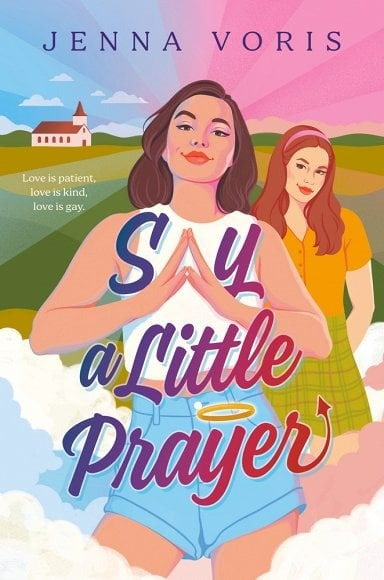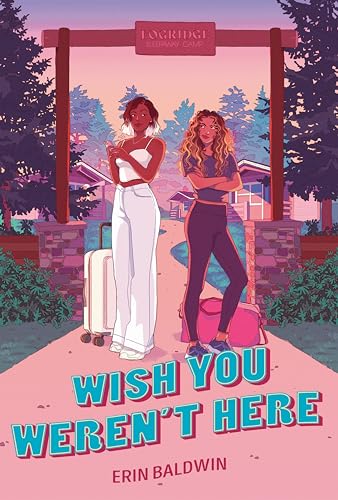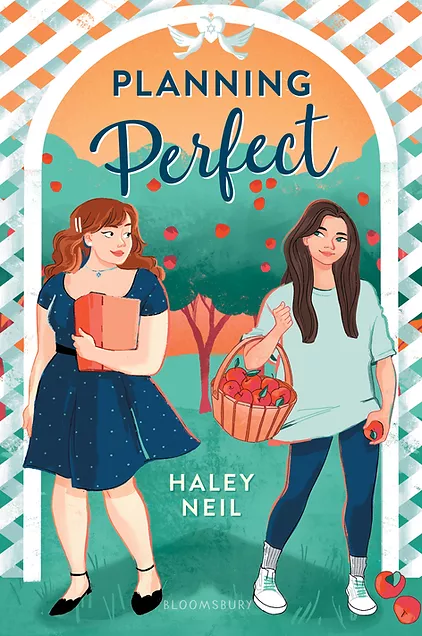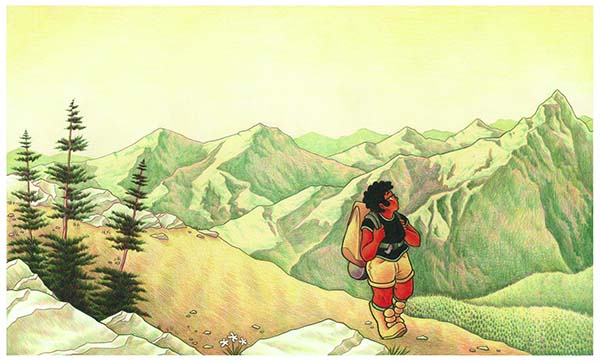Jenna Voris’s most recent novel, Say A Little Prayer (released March 4, 2025), follows stubborn, outspoken, theater kid, Riley, who has recently left her conservative small town church after coming out as bisexual. When Riley’s older sister, Hannah, is kicked out of the church for getting an abortion, Riley makes it her personal mission toRead More
Sapphic Sleepaway Camp: Wish You Weren’t Here by Erin Baldwin
Buy this from Bookshop.org to support local bookstores and the Lesbrary! Priya Freaking Pendley seems to have everything a girl could ask for: social media stardom, the handsome track captain boyfriend, and millions of adoring fans. Juliette might have to live with that during the school year, but at Fogridge Sleepaway Camp, Juliette reigns. It’sRead More
A Love Letter to Summer Camp: Wish You Weren’t Here by Erin Baldwin
Buy this from Bookshop.org to support local bookstores and the Lesbrary! Enemies to lovers is a popular trope, but most people don’t have full-on nemeses in real life. So in contemporary settings, rivals to lovers is more common: the people you compete with, argue with, and hate. Wish You Weren’t Here presents a lower stakesRead More
All The Pretty Girls Read Sapphic Stories: Readalikes for Reneé Rapp’s Snow Angel
If you have watched The Sex Lives of College Girls or Mean Girls (the musical), then chances are that you’re familiar with bisexual singer/actor Reneé Rapp. In 2022, Rapp released her debut EP Everything to Everyone, which featured nine original songs about mental health, her queer identity and love. Most recently, Rapp released her firstRead More
A Sapphic Romance at Adult Summer Camp: That Summer Feeling by Bridget Morrissey
Bookshop.org Affiliate Link That Summer Feeling delivers exactly that. A beach read set at an adult summer camp, this read is low angst and very wholesome. The beginning of the book starts out with a bit of chaos: a flashback to the past, a bit of family history to set the stage, and a franticRead More
Danika reviews As the Crow Flies by Melanie Gillman
Melanie Gillman is one of my favourite artists (tied with Megan Rose Gedris, who did the Lesbrary banner!), so of course I had to buy a physical copy of As the Crow Flies as soon as it was available. I had been following along with the webcomic, but reading it in a physical version, in oneRead More
Danika reviews Drum Roll, Please by Lisa Jenn Bigelow
Starting From Here by Lisa Jenn Bigelow is one of my favourite YA books, so of course when I heard that she had a bisexual middle grade book coming out, I was eager to pick it up. Drum, Roll Please definitely lived up to those expectations. Melly is 13, and the day before she was dropped offRead More



